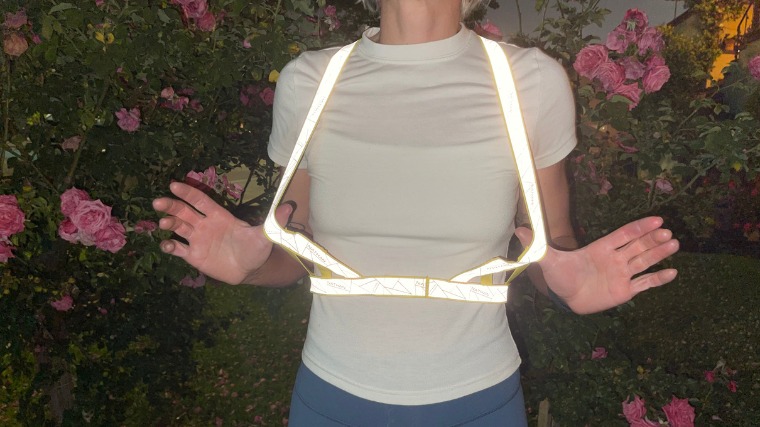You’re sold on the benefits of running, and you’re trying to figure out how to integrate a routine into your busy schedule. Your training plan is written out, your new running gear and running shoes have been shipped. All you need now is…motivation.

That’s the part you’re having the most difficulty with. You’re convinced that running in the morning will be easiest on your schedule, but can your energy levels at five in the morning really give you that many perks? Elite ultra-distance runner and certified expert running coach Lee Whitaker is primarily a morning runner, and he’ll take you through what you need to know.
How One Coach Started Running in the Morning
Though Whitaker often runs in the morning, he’ll be the first to tell you that he isn’t a natural early bird. Mid-morning is his favorite time of day to run because it prevents him from having to sacrifice too many hours of sleep. That dip in sleep quality (and quantity) is definitely something to try to avoid, especially before a long workday.
“A lot of it is just personal preference,” he explains. “Some of us are early risers. Some of us are night owls. Some of us don’t like to eat breakfast before a run. Some of us like to eat a huge breakfast in the morning. Personally, I don’t like to just wake up and go straight out the door and run. My body’s been asleep. I haven’t been able to warm up yet, and I’ll feel stiff. I need to be up for a little bit before I actually want to get outside and run.”
[Read More: The Best Stretches to Do Before a Run, According to a CPT]
Still, Whitaker explains that a morning workout is still preferable to an evening run primarily because he has more control over his morning, and some intrusion is less likely to pop up in the morning that will interfere with his run. Whitaker chalks the biggest benefits of morning runs up to being primarily a matter of convenience rather than discrete health benefits.
“Running in the morning certainly gets it out of the way,” Whitaker says. “You can check it off the list and go manage the rest of the day. I also live in the South, and if you run in the morning before the sun is high in the sky, it’s way cooler. You can have a more quality run without the hot sun beating down on you in the middle of the day. In some people’s climates, that might not be as big of an advantage, but that’s certainly one here.”
Tips for Planning Your Morning Run
If you’ve decided to run in the morning either because you are feeling ambitious and eventually want to enter a race, or because you simply want to improve your health and start the day with some endorphins, it helps to heed advice from an experienced source. Here are a few tips that will help your morning run go off without a hitch, from the first stride to the last.
Prepare the Night Before
If you’re feeling motivated for some morning exercise, it’s a good idea to lay out running clothes and your fave running shoes so you can easily slip into them. This will help jumpstart your process of getting out the door at an unearthly time of the day.
Even more importantly, ensure that you get a restful sleep so that you can get the most out of your workout. You should also take additional steps if your morning run will lead you into some dark places—pun intended. Because some of the best running tips are about safety.

[Read More: The Best Running Vests (Personally Tested)]
“You do want to wear some reflective gear and maybe headlamps or flashing lights,” Whitaker advises about the early hour. “I rarely run anywhere where there’s nobody out. Occasionally, I might run in the middle of nowhere, but most of us live in a suburb or city and want to be seen even though there’s a lot less traffic. You want to be seen, so wear your reflective gear.”
Establish a Favorable Morning Routine
Whitaker doesn’t relish the idea of setting his alarm clock and concedes that he would often prefer to hit the snooze button and head back to bed. Still, morning runs are a frequent feature of his marathon training efforts. So he plans ahead to make sure his run will kickstart his days instead of derailing them ahead of race day.
“My early morning runs typically mean that I’m up at least an hour before I actually go run,” says Whitaker. “In most cases, it’s probably two hours because I like to be awake for a while, have my breakfast, drink my coffee, chill for a while, and maybe watch a little TV or whatever. I just like to be up and moving and kind of get my brain working and my heart rate pumping and everything else before I go out for that run.”
Eat Food That Agrees With Your Body
There are conflicting study results concerning whether running on an empty stomach is preferable to running with a full stomach. (1) There are also studies hinting that eating carbohydrates before a run is typically advantageous to your workout. (2) In Whitaker’s opinion, it’s largely a matter of personal comfort and preference. Whatever approach to meals is most likely to guarantee that you get your miles in, that’s the approach you should take.
[Read More: A Guide to the Best Pre-Workouts Supplements, Tested and RD Approved]
“I eat English muffins with peanut butter and honey before my morning runs,” says Whitaker. “It’s fairly easy to digest and has a good balance of carbs, protein, and fat. I try to avoid heavy, fatty foods before a run. It isn’t fun to be in the middle of a run and suddenly your stomach starts bothering you. It’s very distracting. You can’t run your best when you’re thinking about stomach discomfort.”
Take Breaks When Motivation Is Too Low
Even the most dedicated runners who have logged loads of training miles get sick of running. So if you’re feeling low on motivation from time to time, rest assured that you have plenty of company.
This also means that every runner has days when they need some additional motivation to get them out the door to start pounding the pavement, outside of simply boosting their wellness potential.
“There’s nothing wrong with having low motivation sometimes,” assures Whitaker. “The elite athletes I coach? They get tired, and so do I. You’re busy. You’ve got work or you’ve got school, and you’ve got friends you want to hang out with. There are so many things that impact how we feel, both physically and mentally, and there can be some monotony from running. In those cases, breaks are necessary. The key is not making those breaks too long.”
Frequently Asked Questions
Is it good to run as soon as you wake up?
A meta-analysis of training studies indicates that time of day may matter very little to training results, at least not in a way that can be broadly applied. (3) However, there is evidence that waking up to train early in the morning can disrupt your circadian rhythm when it’s combined with inadequate sleep. (4)
Is it good to run in the morning on an empty stomach?
There is a belief that it is beneficial to exercise in a fasted state early in the morning because you will burn more body fat that way. However, there are study results that indicate that there is no detectable advantage to training in a fasted state as opposed to consuming a small meal before training. (2)
What should I eat before a morning run?
There are study results that indicate pre-exercise carbohydrates can help improve performance in long-duration exercise. (1)
Is it good to run in the morning on an empty stomach?
There are study results that indicate pre-exercise carbohydrates can help improve performance in long-duration exercise. (1)
How do I run in the morning if I’m not a morning person?
There are several strategies you can employ to run in the morning if you are not naturally a morning person. One is to get a running buddy or to join a running group that trains in the morning for the sake of accountability. Another is to attempt to get to sleep earlier in the evening so that you are more refreshed and alert for morning exercise.
Editor’s Note: The content on BarBend is meant to be informative in nature, but it should not be taken as medical advice. When starting a new training regimen and/or diet, it is always a good idea to consult with a trusted medical professional. We are not a medical resource. The opinions and articles on this site are not intended for use as diagnosis, prevention, and/or treatment of health problems. They are not substitutes for consulting a qualified medical professional.
References
- Schoenfeld BJ, Aragon AA, Wilborn CD, Krieger JW, Sonmez GT. Body composition changes associated with fasted versus non-fasted aerobic exercise. J Int Soc Sports Nutr. 2014 Nov 18;11(1):54.
- Rothschild JA, Kilding AE, Plews DJ. What Should I Eat before Exercise? Pre-Exercise Nutrition and the Response to Endurance Exercise: Current Prospective and Future Directions. Nutrients. 2020 Nov 12;12(11):3473.
- Bruggisser F, Knaier R, Roth R, Wang W, Qian J, Scheer FAJL. Best Time of Day for Strength and Endurance Training to Improve Health and Performance? A Systematic Review with Meta-analysis. Sports Med Open. 2023 May 19;9(1):34.
- Youngstedt SD. Delaying early morning workouts to protect sleep in two-a-day athletes. Front Physiol. 2024 Jan 16;15:1346761.
Featured Image: dotshock / Shutterstock